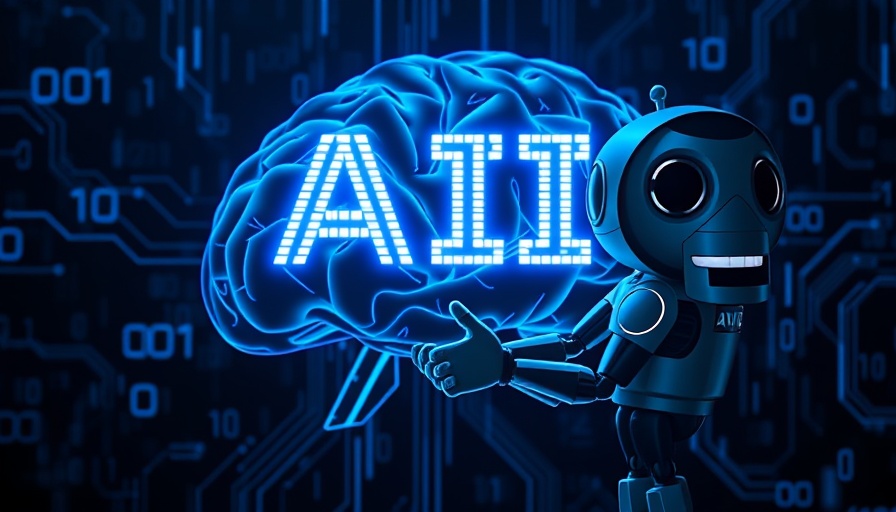
AI Empowerment in Accounting: Beyond Numbers
Generative AI is rapidly transforming traditional accounting into a dynamic, tech-driven profession. With tools like ChatGPT and Claude, accountants can analyze massive datasets, detect anomalies, and produce reports at an unprecedented speed. A recent article by Drs. Paul Lin and Anand Jeyaraj in The CPA Journal emphasizes that these advanced technologies don't replace CPAs—they enhance their capabilities, allowing them to focus more on strategic decision-making rather than mundane tasks.
The Need for AI Literacy in Accounting
As the accounting landscape changes, firms that embrace AI literacy are thriving. Training staff to utilize AI tools effectively and ethically is becoming imperative. A shift in mindset is needed: CPAs must not only learn to use these tools but also to understand their limitations. By leading with AI knowledge, firms can stay ahead of competitors who are slower to adapt. This proactive approach can significantly increase operational efficiency and make firms more competitive in the market.
Insights Unearthed Through AI Tools
AI's ability to analyze complex financial data enables accountants to uncover insights that would likely be missed by human analysis alone. The potential for enhanced financial forecasting and risk assessments allows CPAs to guide clients toward informed decisions. As CFOs and auditors begin to leverage AI, they find that their roles are evolving from simple data reporting to strategic advisement, based on AI-driven insights.
Staying Ahead of Industry Risks
Despite the advantages, the integration of AI isn’t without challenges. AI hallucinations, data security issues, and inherent biases necessitate caution. CPAs must approach their work with a blend of optimism about what AI enables and a healthy skepticism about its potential pitfalls. Establishing protocols for AI usage, including thorough prompting and vetting of outputs, is crucial to maintaining the integrity of the accounting process.
The Future of the Accounting Profession: Professionals and Machines
The confluence of AI and accounting heralds a new age of professionals—think of them as “super CPAs.” These accountants will not only master traditional tax codes and regulations but will also possess a deep understanding of AI and machine learning. This new skill set will enable them to navigate challenges with agility and harness technology's full potential while still applying the critical judgment that defines the profession.
Action Steps for Forward-Thinking Firms
As we consider the future of the accounting profession, firms should take immediate steps to integrate AI tools effectively. Here are a few recommendations:
1. Invest in ongoing training for employees on AI efficiencies and ethical considerations.
2. Encourage a culture of innovation, where staff feel comfortable experimenting with AI tools.
3. Develop clear guidelines on AI usage to manage risks associated with bias and leakage of sensitive information.
By leveraging AI while maintaining a human touch, accountants can redefine what it means to be a professional in their field.
In conclusion, the integration of AI into accounting practices serves not only to streamline operations but also to enhance the strategic roles that accountants play. As technology becomes a vital partner in their day-to-day tasks, CPAs have the opportunity to evolve and meet the demands of an ever-changing business landscape. Firms ready to embrace this shift will position themselves as leaders in the industry, setting the standard for the future.
 Add Row
Add Row  Add
Add 




Write A Comment